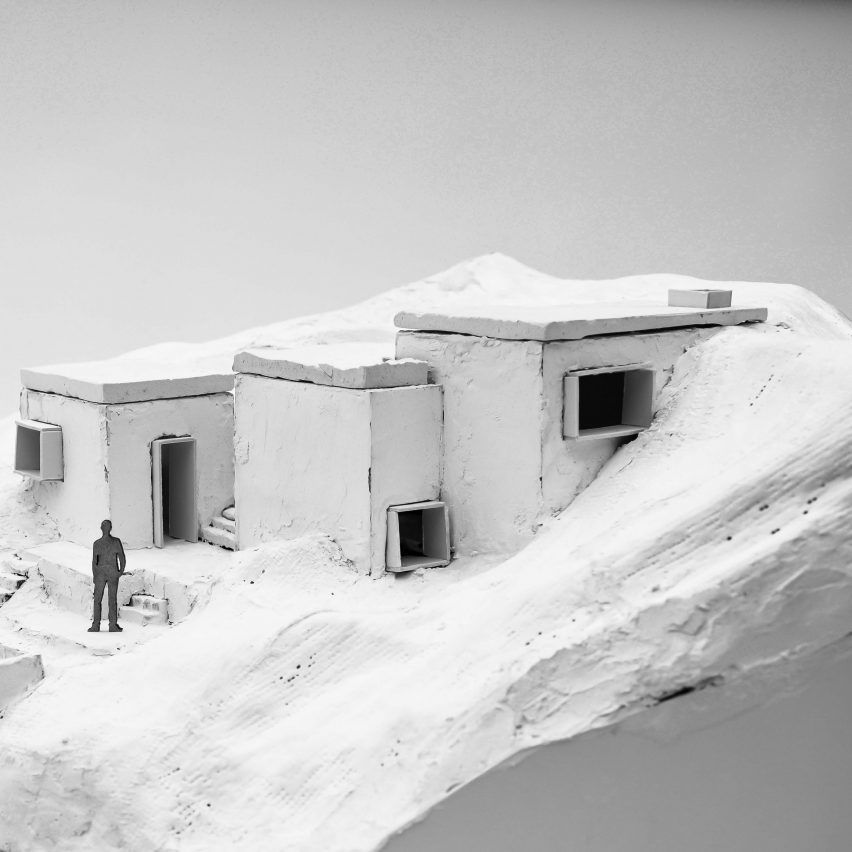
A workspace on the limestone coast of Majorca and the headquarters for the Wildlife Trust within a disused industrial site feature in Dezeen's latest school show from students at Oxford Brookes University.
Also included is a council-funded facility for repurposing local waste and a co-living space informed by the design of high streets.
Oxford Brookes University
School: School of Architecture
Courses: BA (Hons) Architecture and BA (Hons) Interior Architecture
Tutor: Jane Anderson, undergraduate programme lead
School statement:
"Welcome to Oxford Brookes University's School of Architecture. Presented is a compact showcase of our Undergraduate Students. It brings together student work from across all years and programmes. The main exhibition celebrates our students' achievements this year. It is joyful, innovative, thoughtful and stunning.
"The School of Architecture is a vibrant community of staff and students located in the historical and culturally diverse city of Oxford. There is no house style at Oxford Brookes School of Architecture. Instead, you are encouraged to experiment and discover your own.
"Our undergraduate programmes include a RIBA part 1 BA (Hons) Architecture, ARB and LAM accredited course and a BA (Hons) Interior Architecture course. Both of our undergraduate courses have an affiliated association with the ACSA. Based in the historic city of Oxford, our BA courses will allow you to challenge, explore and develop not only you as an individual but also your portfolio. Our students are involved in many different live projects, from our OB1 live to designing an Innovation Hub at John Radcliffe hospital.
"Students explore both old and new challenges from around the world in their work. Here you can find our Live Projects that work with local communities, Architecture that explore tectonic and human relations through film and making, our crucial work in Emergency Practices and Resilience, as well as our expertise in Sustainability.
"Everyone worked so hard this year, and we're so proud of what we've accomplished. The umbrella for all work is a sensibility towards place, people and planet. We hope you enjoy the show."
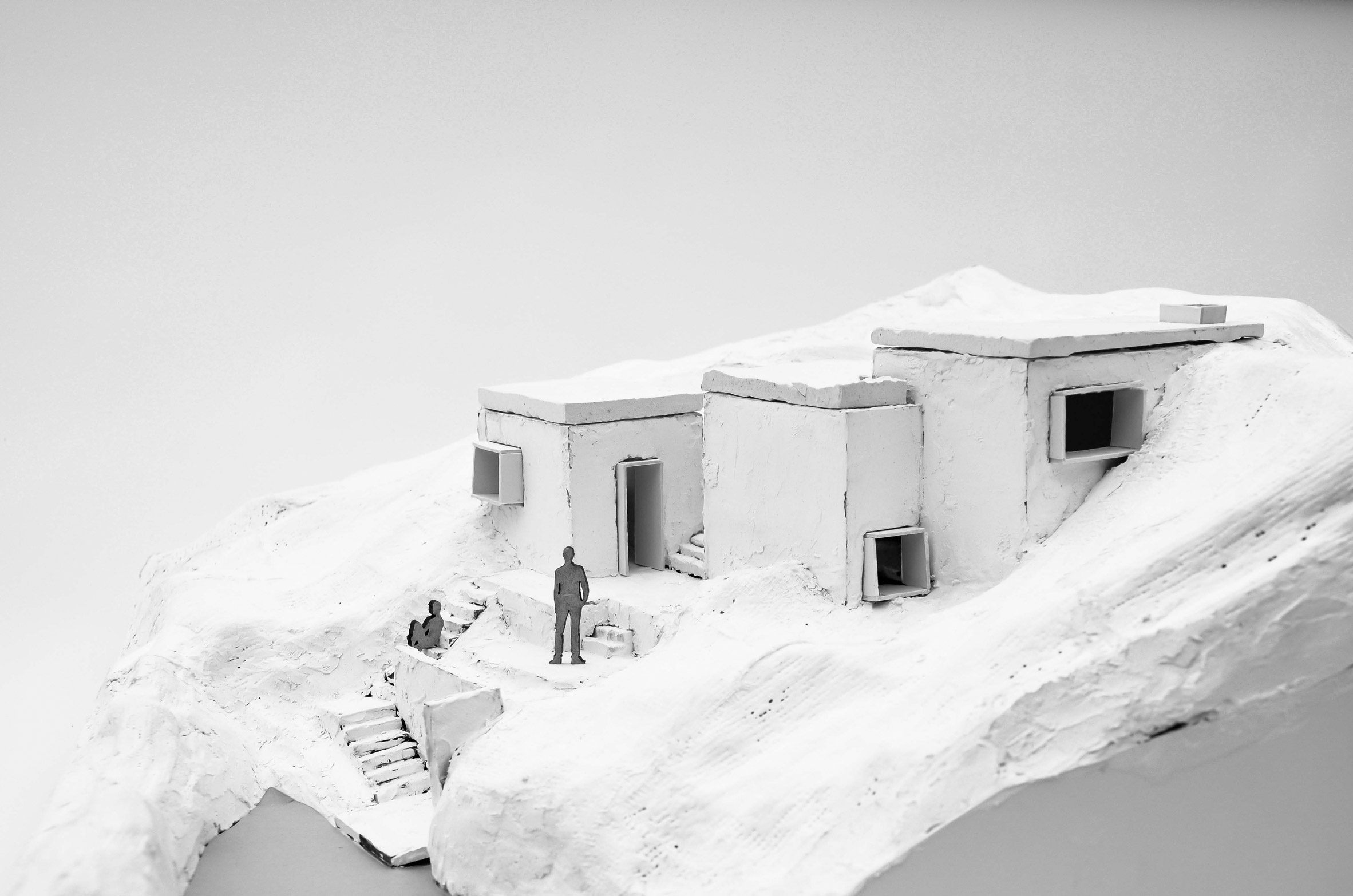
Working Retreat by Helena Gatland
"Working Retreat by Helena Gatland is a modest stone dwelling and workspace nestled into the strata of the limestone coast of Majorca. The stepping and terracing of spaces both inside and out encourage intimate relationships to the landscape and informal semi-outdoor living and working.
"In Unit A, we have a continuing fascination with the landscapes, the climate and the material of place. Throughout the world, the various intersection of these elements generates unique building cultures, distinct vernaculars and local character. Be it the city outside our doorstep or a far-flung island, we find these basic factors to be elemental drivers for architecture."
Student: Helena Gatland
Course: BA (Hons) Architecture
Tutor: Tom Randall-Page and Theo Molloy
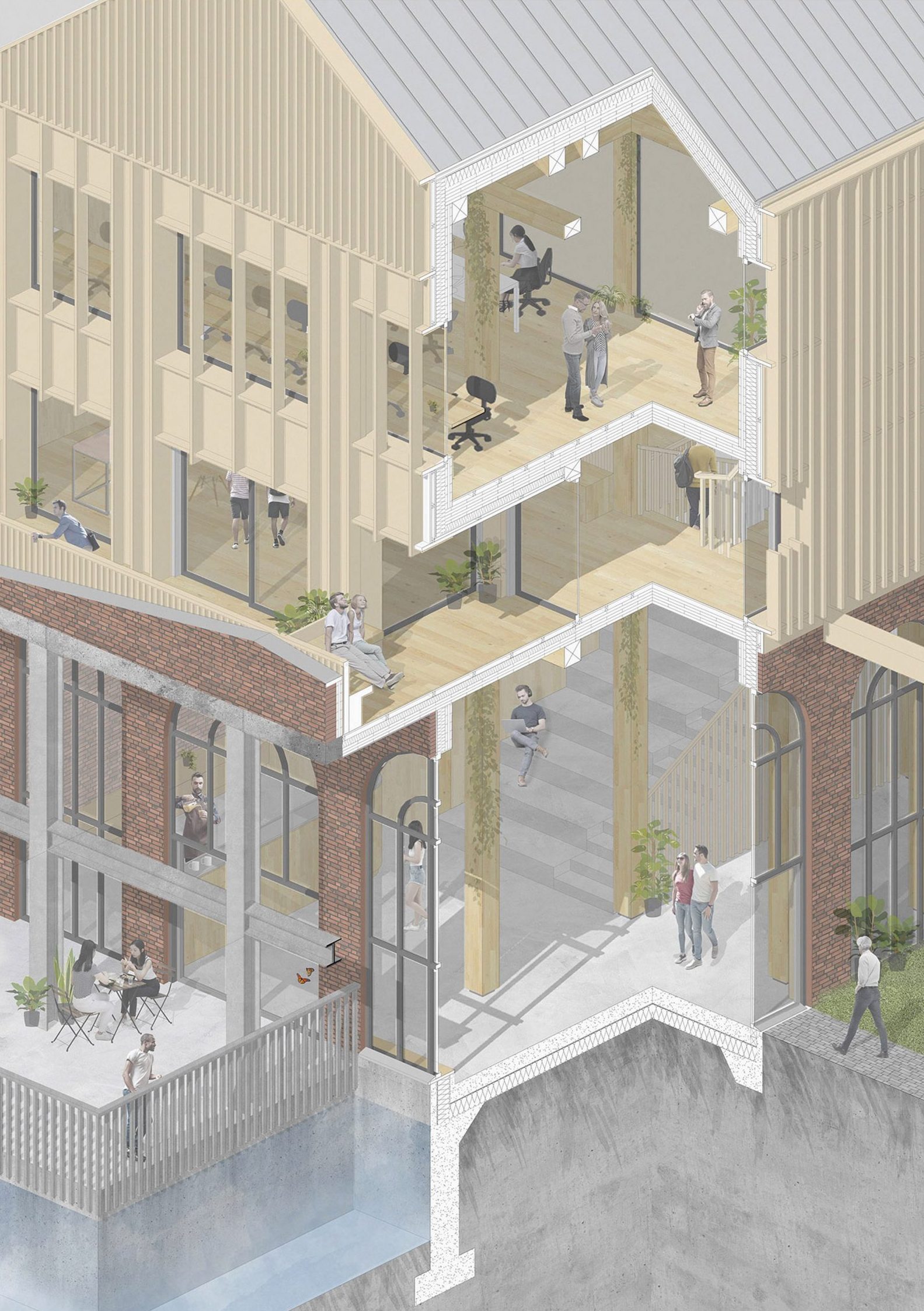
Wildlife Trust by Luke Anderson
"Luke Anderson has designed a new headquarters for the Wildlife Trust on a disused industrial site situated on the banks of the Thames in Oxford. The biophilic scheme aims to bring users closer to the environments and wildlife they are trying to protect. "
Student: Luke Anderson
Course: BA (Hons) Architecture
Tutors: Aditya Aachi and Nathan Breeze
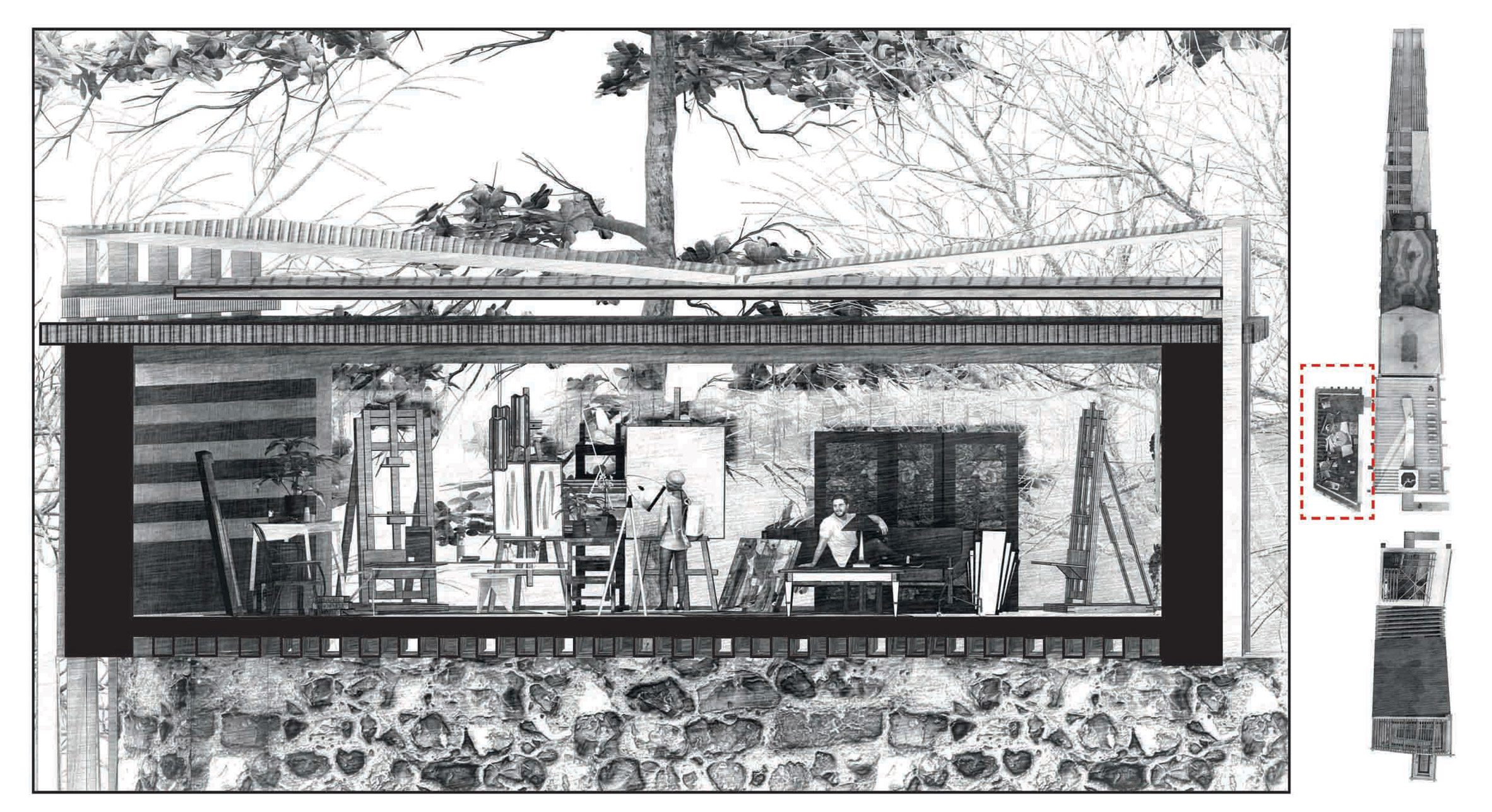
The Herbal Apothecary by Gabe Edyvean-Heard
"The power of stories can transform the world. They bring us into contact with worlds unknown to us and open our eyes to possibilities not yet imagined. For us, as designers, compelling ways of telling tales are the tools we use to powerfully communicate our ideas.
"As architects, we are storytelling dreamers, we imagine a building, and then we will see it into the present through our drawings, written words, spoken words, sketches and hand gestures. Our students, like Gabe Edyvean-Heard, tell stories through their architecture."
Student: Gabe Edyvean-Heard
Course: BA (Hons Architecture)
Tutors: Hannah Durham and Tom Sykes
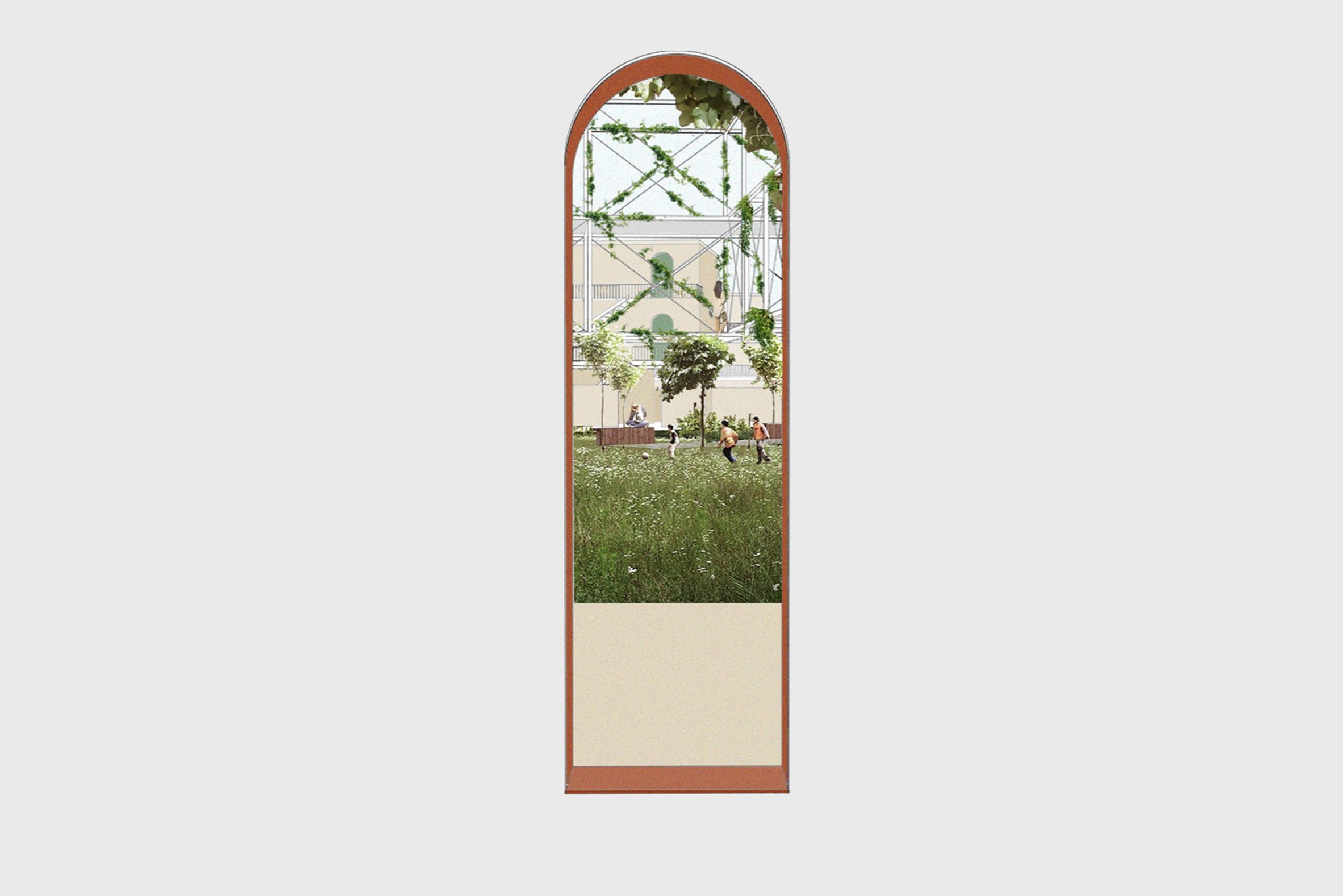
The Green Line by Dassa Shalev
"The project emerged from deep analysis of the culturally contested context in the Old Town of Nicosia and aims to unify the Cypriot communities by bringing agriculture and farming into the city centre.
"This includes a residential complex: private apartments shared living areas and a greenhouse for the farmers and their families. By encouraging bi-communal living and working, the project aims to break down barriers and misconceptions between the communities.
"The bridge supports an infrastructure of planting, potable water and electricity, that can be extended throughout the buffer zone and across the island, whilst physically reconnecting the two sides."
Student: Dassa Shalev
Course: BA (Hons) Architecture
Tutors: Melissa Kinnear and Rob Goacher
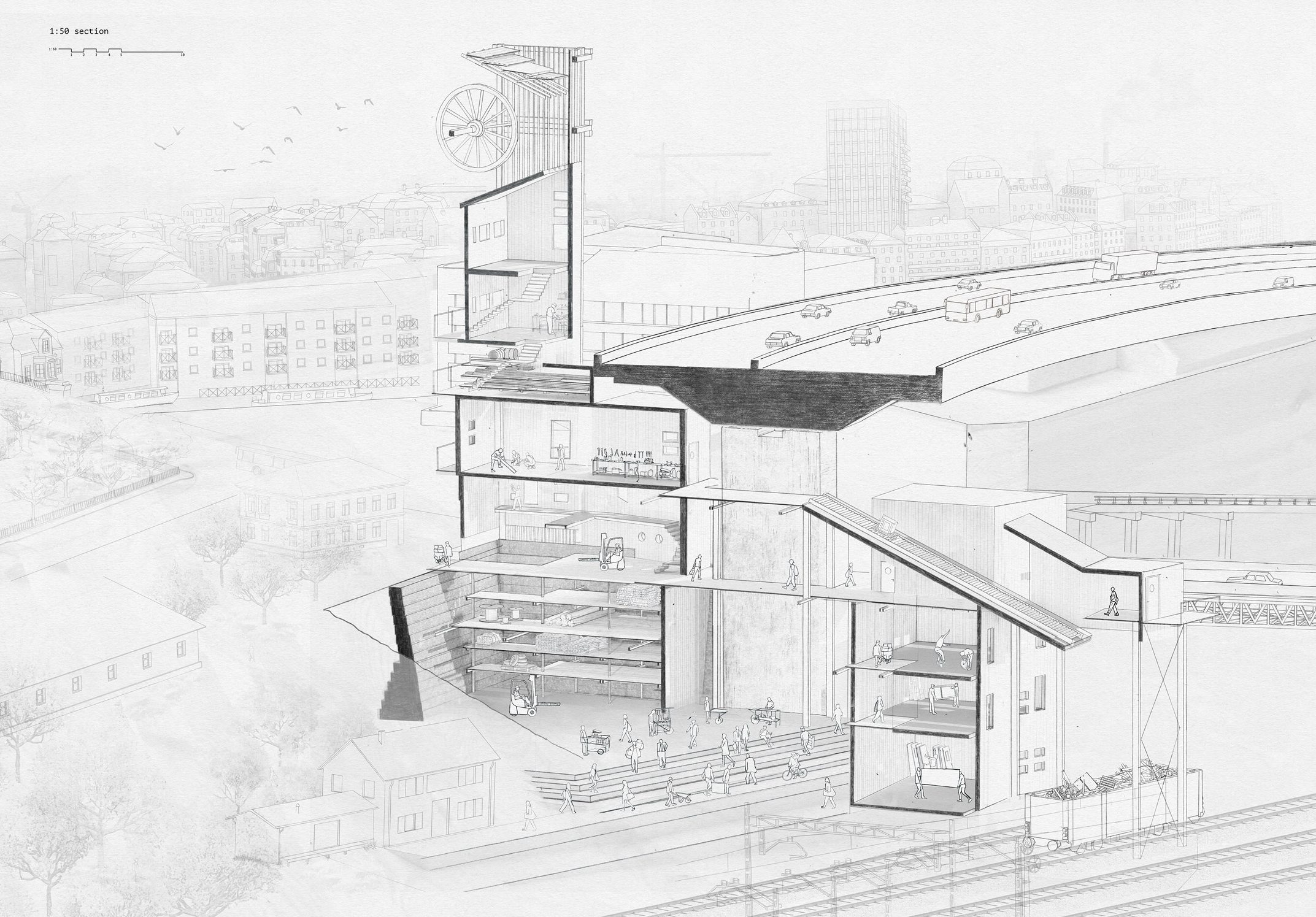
Treasure Yard by Ole Sund
"This proposal looks at developing a Council-funded facility for repurposing local waste in public use workshops. Industrialisation has left us big cities, factories, canals and railroads. Post-war global capitalism has added high rises, airports, highways and glass fibre cables.
"The Westway in Notting Hill is an excellent example location to explore what infrastructure we will leave behind. Europe's biggest purpose-built flyover is currently under review. Our aim is to design the supporting infrastructure needed to make the Westway area more healthy, accessible, and resilient for the immediate and long term future."
Student: Ole Sund
Course: BA (Hons) Architecture
Tutors: Margit Kraft and Anastasia Glover
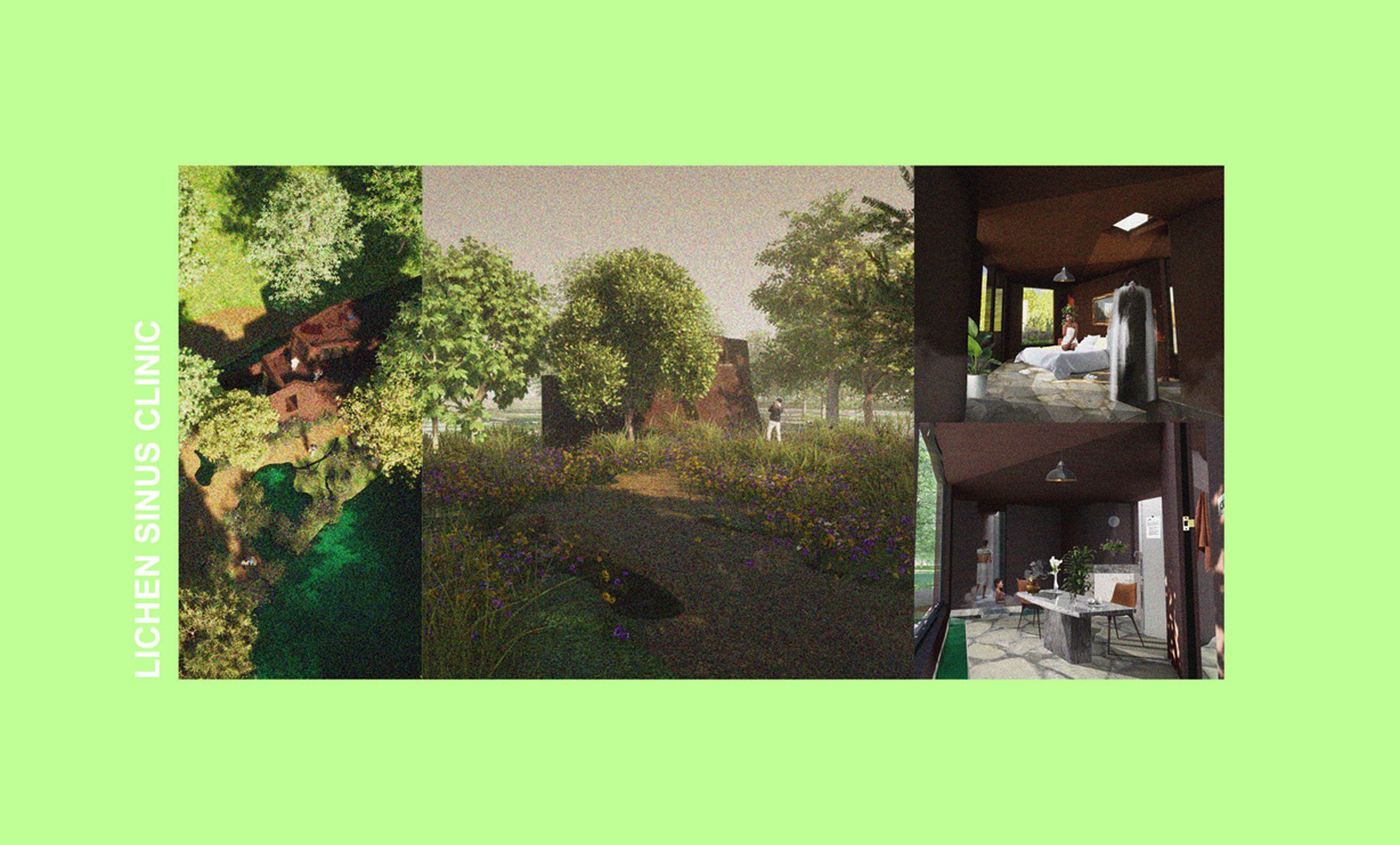
Lichen Sinus Clinic by Patrick Kotowski
"This project is an accumulation of lichen, smell, water, minimalist design and health. One of the most underappreciated luxuries we have is the ability to smell. Some people don't, either through Covid-19 or another condition.
"The Lichen Sinus Clinic is the symbolic reflection of the multi-organism, lichen. It has the ability to purify the local condition for optimal biological growth and is a sign of ideal conditions.
"Heating local, freshwater to create steam indoors allows the patient's blocked sinus to open once again, or for the first time, through the experience of a 'clean line', symbolic architecture."
Student: Patrick Kotowski
Course: BA (Hons) Architecture
Tutors: Delfina Bocca and Amelia Vilaplana
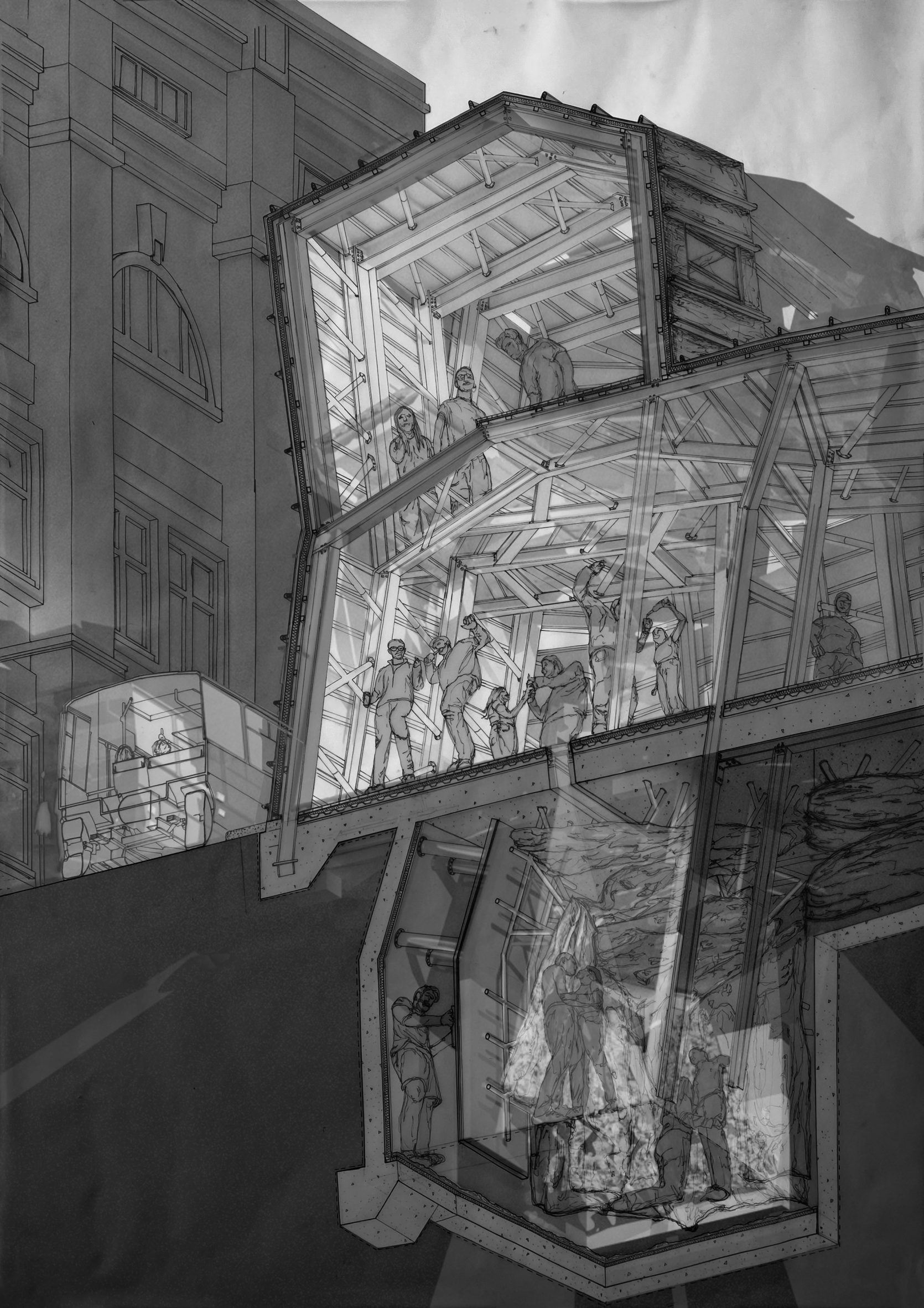
Dionysian Indulgence by Marco Nicholas
"Continuing Unit G's fascination for unexpected stories revealed by intense observation and iterative design, the projects explore the extraordinary in the ordinary. Concepts that inspire joy and delight while considering how architecture carries a narrative beyond utility to reflect, respond, laugh, cry, shout, rage, sing, or protest at our times and society.
"On the surface, Marco Nicholas' 'Dionysian indulgence' is a departure lounge for passengers of Oxford's Gloucester Green bus station. But once inside, the architecture encourages visitors to overindulge, become increasingly detached from their reality and routines, succumb to their Dionysian impulses and miss their bus!"
Student: Marco Nicholas
Course: BA (Hons) Architecture
Tutors: Toby Smith and Mike Halliwell
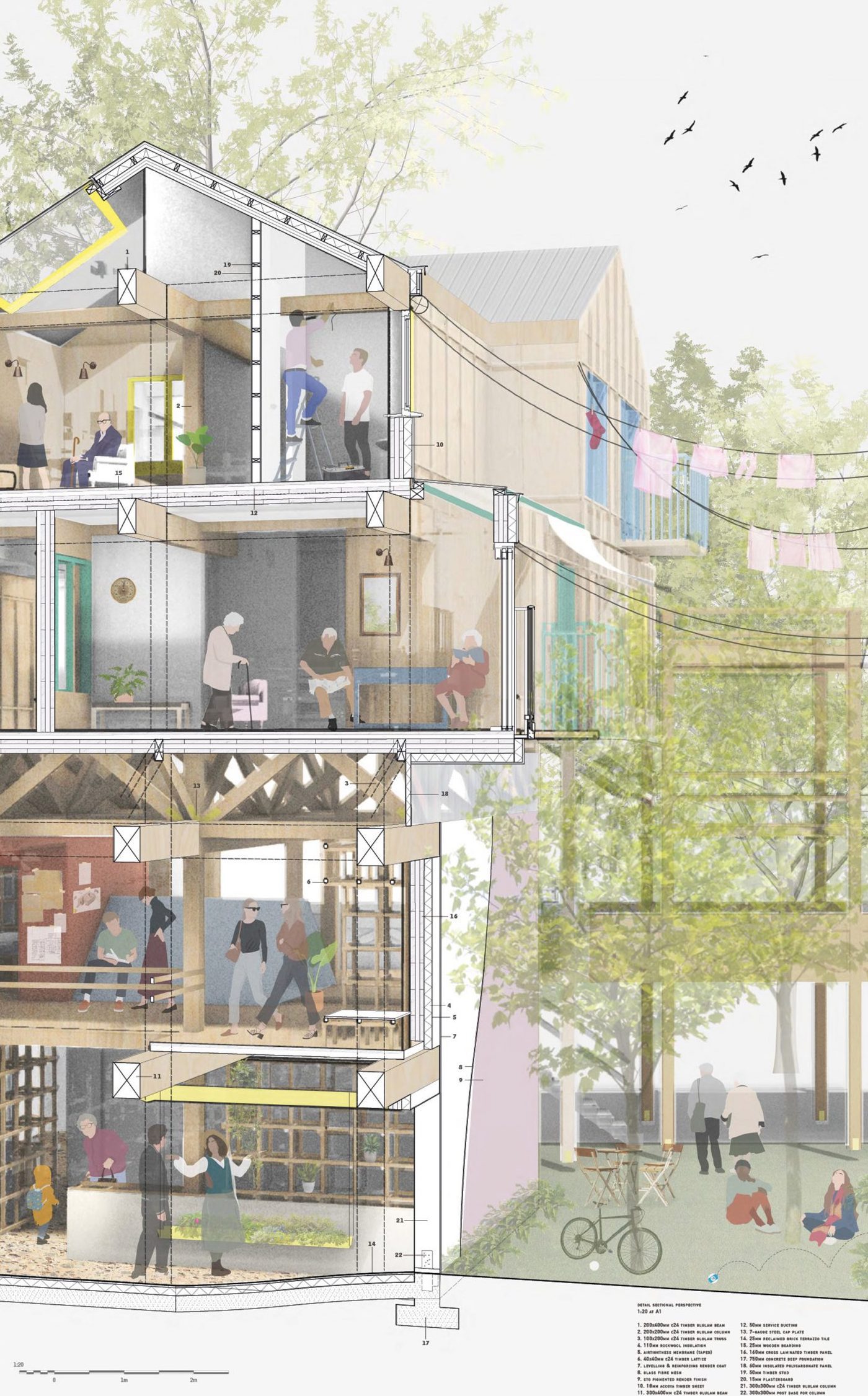
The Self Build CoOp by Fergus Adam Smith
"The Self-Build CoOp is a new typology of co-living specific to the high street, inspired by the functions of a public house. The CoOp playfully creates new social habits and more diverse uses along the high street whilst also delivering on housing demand in the city.
"Unit H is focused on the city as a never-ending conversation, a place of conflict and resolution, where people's ideas are tested and nurtured, adopted and displaced. Not a place to be rationalised, but a tangled dialogue that architects can learn to negotiate.
"This year, we investigated the role architecture and design can play as the mediator between local eccentricities, idiosyncrasies and perceptions, in conflict with national/global trends. Driven by the emergence of the experience economy, we explored how an architectural ecology of 'amusement' could begin to take priority in our cities."
Student: Fergus Adam Smith
Course: BA (Hons) Architecture
Tutors: Felicity Barbur & Gareth Marriot
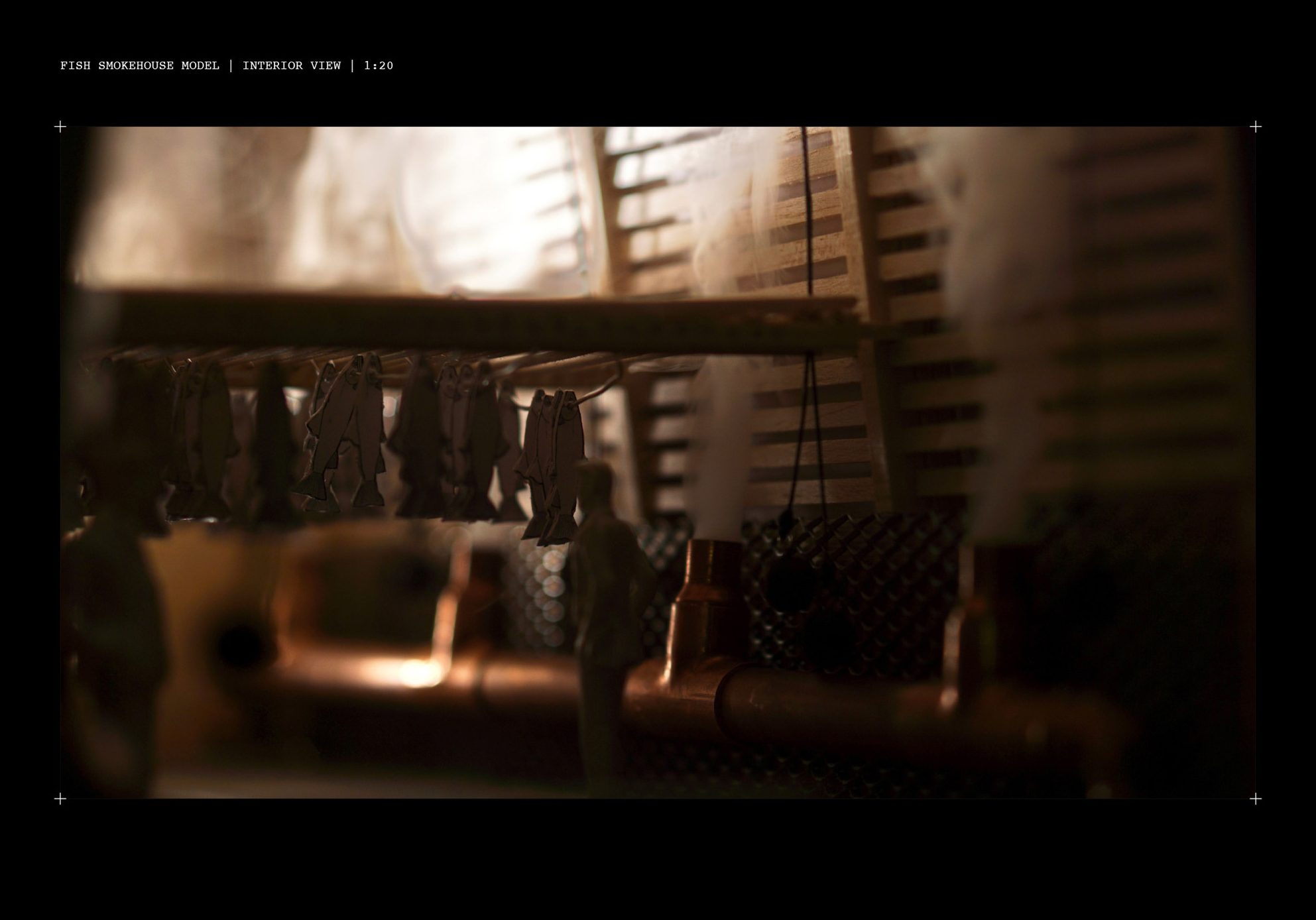
Amphibious Hydrological Dwelling by Oli Rash
"Rash's mechanical brewery project provides an intelligent and highly sensitive response to the local historical, physical and social context of Norwich, located by the River Wensum and within an ex-industrial area of the city. His proposal draws upon the brewing history of the local area, intricately connecting the processes of making lambic beer and fishing.
"In addition to providing an educational environment in which these processes are made visible to the public, and local communities, his intensely detailed and exceptionally well-researched proposal engages with the wider ecology of Norfolk, where local farmers share their growing, fertilisation and harvesting procedures in exchange for spent grain, a byproduct from the brewing process, which can be used for animal feed."
Student: Oli Rash
Course: BA (Hons) Architecture
Tutors: Emma-Kate Matthews and Kirsty McMullan
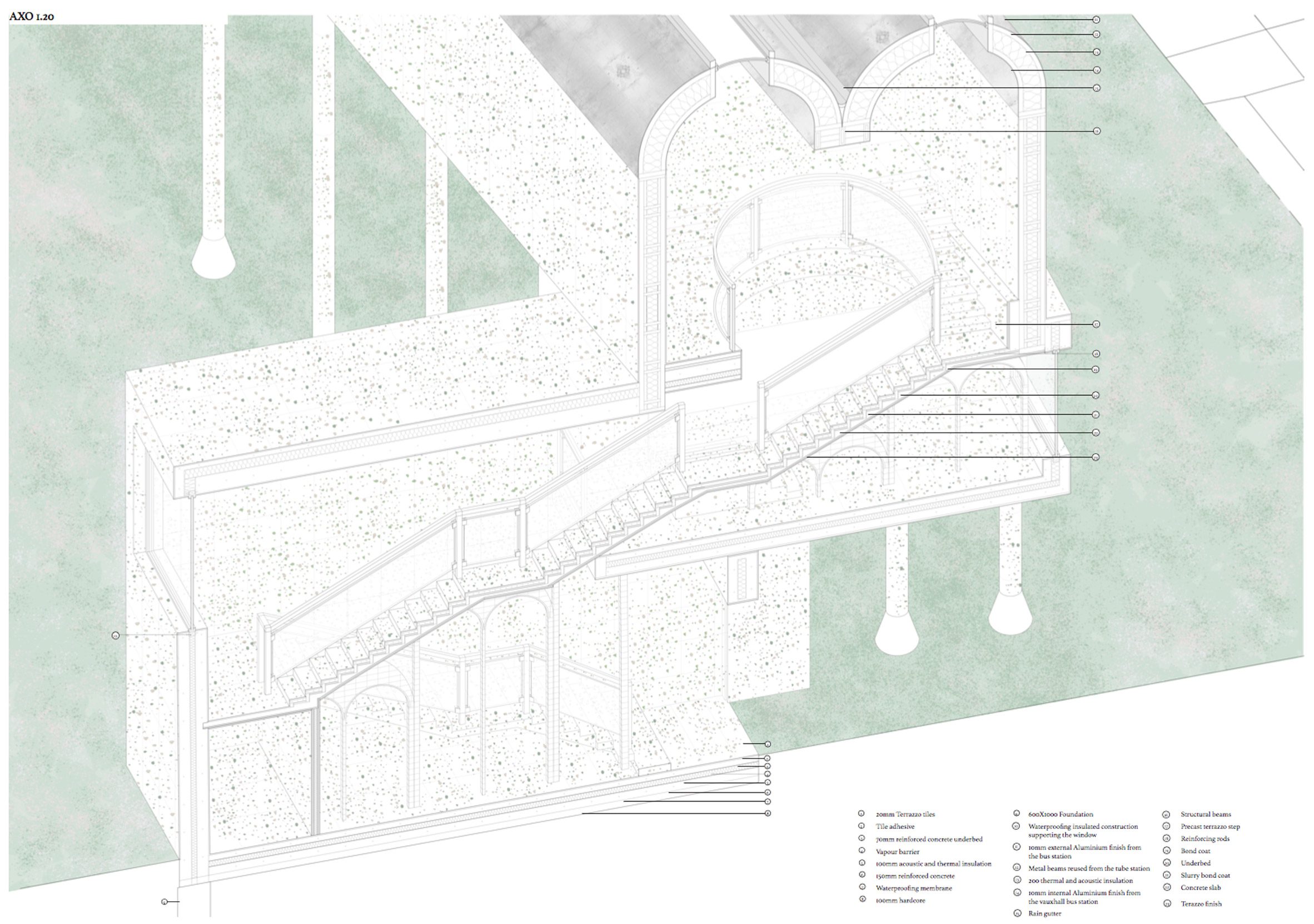
Reimagined Institute for Contemporary Arts by Francesca Adorni Braccesi Chiassi
"One of the most significant innovations in eighteenth-century leisure was the pleasure garden: a dedicated outdoor space for entertainment. London's pleasure gardens defined the city’s night-life in the 18th and 19th centuries.
"They were sites for music, dancing, eating and drinking, regular fireworks, operas, masquerades and illuminations. Approaching Vauxhall, Unit K was seeking to unearth the layers of the lost city as well as the living one, and re-establish a space for public celebration, starting by collectively designing structures for an open-air performance, and later developing it into a new kind of cultural or performance venue or institution."
Student: Francesca Adorni Braccesi Chiassi
Course: BA (Hons) Architecture
Tutors: Marko Milovanovic and Nichola Barrington-Leach

A Co-Living Sanctuary-Designing for Spiritual Wellbeing by Holly Moroney
"This project is a conversion of two semi-detached houses in Jericho, Oxford into Co-Living shared accommodation.
"The brief aims to appropriate a relatively new housing typology (Co-Living) in the context of a deliberate rehabilitation of existing housing stocks. The transformation should substantially increase the density of occupation while providing a suitable alternative approach to living arrangements with its blend of private and collective spaces structured around shared activities.
"Domesticity, in this case, is explored as a tool to reach a higher level of spiritual wellbeing. The technical considerations and design strategies aim to provoke a higher level of wholeness and enriched lifestyles between the users. The concept of 'mindful moments' interprets into the design as spaces to contemplate, rest, and re-connect to the present; alone or with others."
Student: Holly Moroney
Tutors: Andrea Placidi & Orit Sarfatti
Course: BA (Hons) Interior Architecture
Partnership content
This school show is a partnership between Dezeen and Oxford Brookes University. Find out more about Dezeen partnership content here.
The post Oxford Brookes University spotlights 11 student architectural projects appeared first on Dezeen.

No comments:
Post a Comment